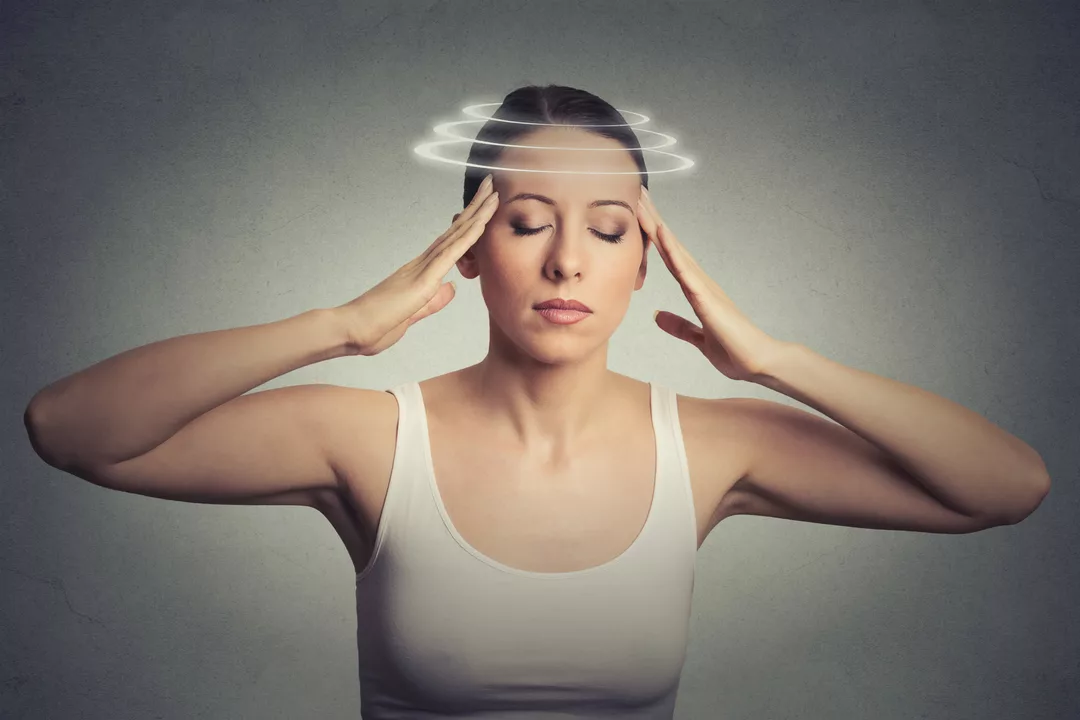Understanding Dizziness and Motion Sickness
Before we delve into the scientific explanations behind dizziness and motion sickness, it's essential for us to understand what these terms mean. Dizziness is a sensation of lightheadedness, fainting, or unsteadiness, often accompanied by a spinning sensation known as vertigo. Motion sickness, on the other hand, is a condition where the brain receives conflicting signals from the inner ear, eyes, and other sensory receptors, leading to discomfort, nausea, and sometimes vomiting. In this article, we'll explore the science behind these phenomena and discuss ways to prevent and manage them.
The Role of the Inner Ear
The inner ear plays a crucial role in our sense of balance and spatial orientation. This intricate structure consists of three semicircular canals filled with fluid and tiny hair cells. When we move our head, the fluid within these canals shifts, causing the hair cells to bend. These hair cells then send signals to our brain about the direction and speed of our head movement. This information, along with input from our eyes and other sensory receptors, helps us maintain our balance and navigate through our environment.
Vestibular Mismatch: The Source of Motion Sickness
As mentioned earlier, motion sickness occurs when the brain receives conflicting signals from the inner ear, eyes, and other sensory receptors. This is known as vestibular mismatch. For example, when you're reading a book in a moving car, your inner ear senses the vehicle's motion, but your eyes are focused on the stationary text. This creates a discrepancy in the signals sent to your brain, leading to the symptoms of motion sickness.
Why Some People Are More Susceptible
Not everyone experiences motion sickness or dizziness to the same degree. Some individuals are more prone to these conditions due to genetic factors or differences in the inner ear structure. Additionally, factors such as age, medications, and certain medical conditions can also influence an individual's susceptibility to motion sickness and dizziness. For example, older adults and people with migraines are more likely to experience vertigo and other balance-related issues.
Preventing and Managing Motion Sickness
While it's not always possible to avoid motion sickness entirely, there are several strategies that can help reduce its severity or prevent it altogether. Some of these methods include:
- Choosing a seat with the least motion, such as the front of a car or the middle of a boat
- Focusing on a distant point or the horizon to help synchronize visual and vestibular input
- Avoiding reading or using electronic devices while in motion
- Utilizing over-the-counter or prescription medications, such as antihistamines or scopolamine patches
- Using natural remedies, like ginger or acupressure wristbands
Consulting with a healthcare professional can also help you determine the best approach to managing motion sickness based on your individual needs and circumstances.
When to Seek Medical Help
While occasional dizziness and motion sickness are usually not causes for concern, it's essential to seek medical attention if these symptoms become persistent or worsen over time. This could indicate an underlying issue, such as an inner ear disorder, neurological condition, or cardiovascular problem. Additionally, sudden onset dizziness accompanied by symptoms like severe headache, chest pain, or difficulty breathing should be treated as a medical emergency.
Conclusion: A Deeper Understanding of Dizziness and Motion Sickness
In summary, the science behind dizziness and motion sickness revolves around the inner ear and the vestibular system, which plays a vital role in our sense of balance and spatial orientation. Understanding these mechanisms can help us prevent and manage these conditions more effectively. By implementing strategies to minimize vestibular mismatch and seeking medical help when necessary, we can reduce the impact of dizziness and motion sickness on our daily lives.







Comments
Sireesh Kumar
11 May 2023Alright, let me break it down for you: the inner ear’s semicircular canals are basically tiny gyroscopes filled with fluid, and when you turn your head the fluid sloshes around, tugging on hair cells that shout signals at your brain. If those signals clash with what your eyes are seeing – say you’re glued to a phone in a swaying car – your brain gets confused and throws a full‑blown motion‑sick tantrum. This isn’t some mystical curse; it’s pure physics mixed with neurochemistry. The vestibular system is wired to keep you upright, but when it receives contradictory input it decides the safest option is to make you feel nauseous, hoping you’ll stop the offending activity. So next time you feel the world spin, blame the fluid dynamics, not some ghosts.
Jonathan Harmeling
11 May 2023Honestly, it’s a shame how many people just pop an antihistamine and call it a day without considering the root cause. The reckless reliance on quick fixes fuels a culture of complacency, turning our inner‑ear warnings into background noise. If you truly care about your health, you’d respect the body’s signals and adopt smarter habits, like looking out the window instead of scrolling, or choosing seats that minimize motion. It’s not just about feeling better for a few hours; it’s about cultivating responsibility for one’s own well‑being. Stop treating dizziness as a nuisance and start treating it as a cue to adjust your environment and mindset.
Ritik Chaurasia
11 May 2023From a cultural standpoint, many Indian families have long known that ginger, chilies, and even simple breathing exercises can tame the queasy feeling of motion sickness. Don’t just dismiss these time‑tested remedies as folk‑medicine; they actually act on the stomach’s receptors and the vestibular pathways, reducing nausea before it peaks. Moreover, aggressive adaptation-like training your vestibular system through repeated exposure on a boat or a simulator-can dramatically raise your tolerance. If you’re willing to put in the effort, you’ll find that the body can rewire itself, a fact backed by recent research on vestibular rehabilitation. Stop relying solely on Western pills and give traditional, proactive strategies a chance.
Kelli Benedik
11 May 2023Ugh, the last time I was on a ferry I felt like the world was doing a cha‑cha on my inner ear 😵💫. The constant up‑and‑down made my stomach churn like a washing machine, and I could barely keep my eyes on the horizon without feeling like I was about to hurl. I tried the ginger chews my grandma swears by, and they actually helped a bit, but the real savior was focusing on the distant shoreline and taking deep, steady breaths. The whole experience reminded me how fragile our balance system is and why we need to respect it, especially on unpredictable rides. 🌊🚤
cariletta jones
11 May 2023Great summary, very helpful!
Kevin Hylant
11 May 2023I find it fascinating how vestibular training can actually modify the brain's response to mismatched signals. Simple exercises like head‑tilt rotations while focusing on a fixed point can strengthen the coordination between eye and inner‑ear inputs. It’s a straightforward way to boost tolerance without relying on meds. Just a short daily routine can make a noticeable difference over a few weeks.
Eileen Peck
11 May 2023Oh dear, the inner ear can be such a fickle friend, can't it? When I first started experiencing those dizzy spells on a train, I thought it was just a fleeting inconvenience, but it quickly became clear that something deeper was at play. I discovered that the fluid in the semicircular canals, which should ideally flow smoothly, can become "out‑of‑sync" with what our eyes see, leading to that dreaded vestibular mismatch. This mismatch is the root cause of motion sickness, and understanding it is the first step toward managing it. I started by picking a seat at the front of the vehicle, where the motion feels less aggressive, and it made a noticeable difference. Then I tried the age‑old trick of looking at the horizon; it gives the brain a stable visual reference to reconcile with the inner‑ear signals. I also gave ginger a go – a little ginger tea or candied ginger before a trip can calm the stomach and reduce nausea. For those who find natural remedies insufficient, over‑the‑counter antihistamines or scopolamine patches are effective, but they should be used sparingly and ideally after consulting a health professional. If motion sickness persists, vestibular rehabilitation exercises can be a game‑changer; they involve specific head‑movement drills that retrain the brain to handle sensory conflicts more gracefully. I’ve found that consistent practice of these drills over a few weeks dramatically lowers my susceptibility. Lastly, never ignore persistent dizziness – it can sometimes hint at underlying issues like Ménière's disease or a neurological condition, so a doctor’s evaluation is essential. Remember, the goal is to keep your vestibular system and visual cues in harmony, and a few practical steps can go a long way toward that balance. Stay safe, and may your future journeys be smooth and steady!